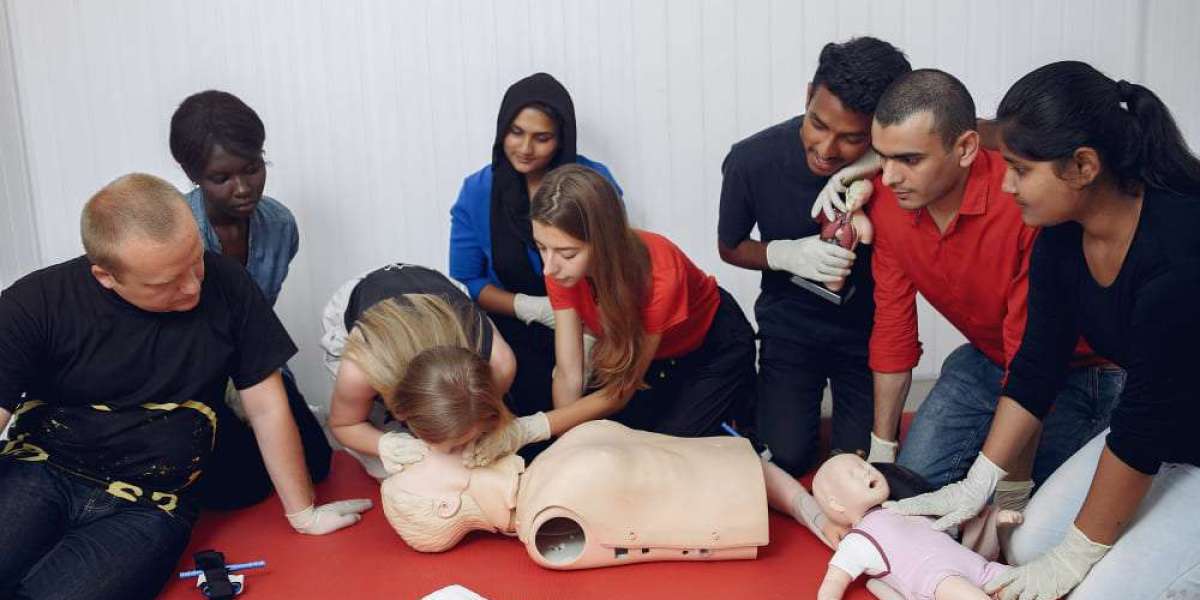In today's fast-paced world, emergencies can occur at any moment, and being equipped with advanced first aid skills can be the difference between life and death. Advanced first aid training goes beyond basic first aid techniques, providing individuals with comprehensive knowledge and practical skills to handle more serious medical situations effectively. Whether you're a healthcare professional, a parent, or simply a concerned citizen, understanding advanced first aid can empower you to act confidently in critical moments.
Understanding Advanced First Aid
Advanced first aid is a specialized training program designed to equip individuals with the skills necessary to provide critical care before professional medical help arrives. Unlike basic first aid, which covers essential practices like CPR, wound care, and basic bandaging, advanced first aid delves deeper into medical emergencies. This training includes managing complex injuries, administering medications, using advanced medical equipment, and stabilizing patients with severe conditions.
Why Advanced First Aid Is Essential
Enhanced Preparedness for Emergencies Emergencies are unpredictable and can happen at any time. Advanced first aid training ensures that you are prepared to handle a wide range of medical situations. From cardiac arrests and severe bleeding to fractures and burns, advanced first aid provides you with the knowledge and skills to manage these emergencies effectively.
Improved Confidence in Critical Situations One of the primary benefits of advanced first aid training is the confidence it instills in individuals. Knowing that you have the skills to manage a medical emergency can reduce panic and enhance your ability to make quick, informed decisions. This confidence is crucial in ensuring that the victim receives timely and appropriate care, potentially saving their life.
Greater Self-Sufficiency in Remote Areas For individuals who live or work in remote areas, access to professional medical help may be limited. Advanced first aid training becomes invaluable in such situations, as it equips you with the ability to manage medical emergencies until professional help can be reached. This self-sufficiency is particularly important for outdoor enthusiasts, travelers, and those working in remote industries.
Key Components of Advanced First Aid Training
Advanced first aid training covers a wide range of topics, each crucial for handling different types of emergencies. Here are some of the key components included in an advanced first aid course:
Cardiopulmonary Resuscitation (CPR) and Automated External Defibrillator (AED) Use While basic first aid includes CPR, advanced first aid provides more in-depth training on performing CPR on adults, children, and infants. Additionally, it covers the use of AEDs, which are critical in cases of cardiac arrest.
Advanced Wound Care Advanced first aid training teaches participants how to manage complex wounds, including deep lacerations, puncture wounds, and avulsions. This includes techniques for controlling severe bleeding, cleaning and dressing wounds, and preventing infection.
Fracture Management Understanding how to properly immobilize fractures and dislocations is a key component of advanced first aid. This training covers the use of splints, slings, and other immobilization devices to stabilize injured limbs and prevent further damage.
Burn Treatment Burns can range from minor to life-threatening. Advanced first aid training provides knowledge on assessing the severity of burns and administering appropriate first aid, including cooling the burn, covering it with sterile dressings, and managing pain.
Medical Emergencies Advanced first aid includes training on recognizing and responding to various medical emergencies, such as strokes, heart attacks, seizures, and diabetic emergencies. This training often involves the administration of medications like epinephrine, nitroglycerin, and glucose.
Environmental Emergencies Participants learn how to handle emergencies caused by environmental factors, such as hypothermia, heat stroke, and poisoning. This includes understanding the signs and symptoms, as well as the appropriate first aid measures for each situation.
The Importance of Continuous Learning and Practice
Like any skill, first aid techniques need to be practiced regularly to remain effective. Advanced first aid training encourages continuous learning and practice through refresher courses and hands-on practice sessions. Staying up-to-date with the latest first aid guidelines and techniques ensures that you are always prepared to provide the best possible care in an emergency.
Conclusion
Advanced first aid training is an invaluable asset for anyone who wants to be prepared for emergencies. By providing comprehensive knowledge and practical skills, it enables individuals to manage complex medical situations effectively and confidently. Whether you're a healthcare professional, an outdoor enthusiast, or simply someone who wants to be prepared, investing in advanced first aid training can make a significant difference in the outcomes of medical emergencies. Remember, in critical situations, every second counts, and being equipped with advanced first aid skills can help save lives.







